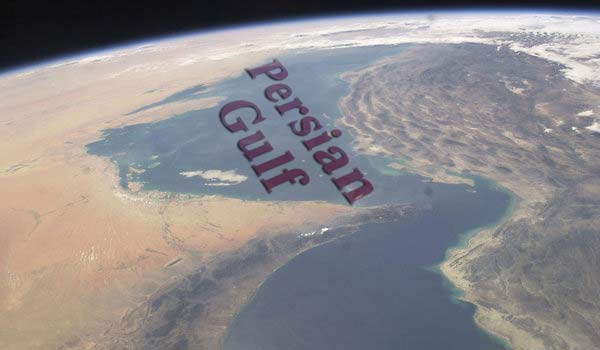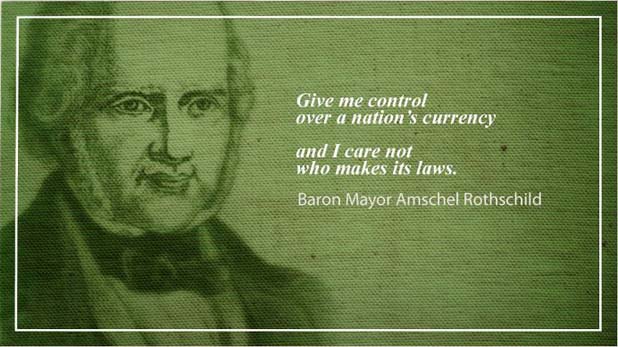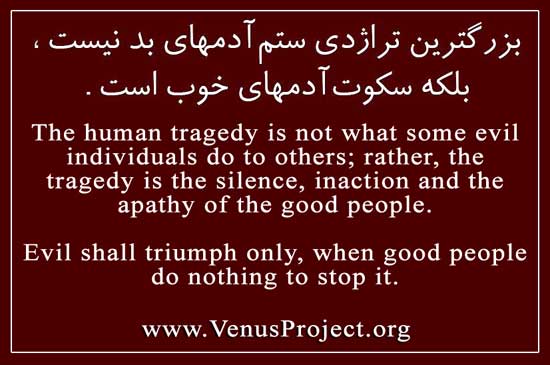U.S. Adds Forces in Persian Gulf, a Signal to Iran

By THOM SHANKER, ERIC SCHMITT and DAVID E. SANGER - The New York Times - July 3, 2012
WASHINGTON - The United States has quietly moved significant military reinforcements into the Persian Gulf to deter the Iranian military from any possible attempt to shut the Strait of Hormuz and to increase the number of fighter jets capable of striking deep into Iran if the standoff over its nuclear program escalates.
The deployments are part of a long-planned effort to bolster the American military presence in the gulf region, in part to reassure Israel that in dealing with Iran, as one senior administration official put it last week, “When the president says there are other options on the table beyond negotiations, he means it.”
But at a moment that the United States and its allies are beginning to enforce a much broader embargo on Iran’s oil exports, meant to force the country to take seriously the negotiations over sharply limiting its nuclear program, the buildup carries significant risks, including that Iran’s powerful Islamic Revolutionary Guards Corps could decide to lash out against the increased presence.
The most visible elements of this buildup are Navy ships designed to vastly enhance the ability to patrol the Strait of Hormuz — and to reopen the narrow waterway should Iran attempt to mine it to prevent Saudi Arabia and other oil exporters from sending their tankers through the vital passage.
The Navy has doubled the number of minesweepers assigned to the region, to eight vessels, in what military officers describe as a purely defensive move.
“The message to Iran is, ‘Don’t even think about it,’ ” one senior Defense Department official said. “Don’t even think about closing the strait. We’ll clear the mines. Don’t even think about sending your fast boats out to harass our vessels or commercial shipping. We’ll put them on the bottom of the gulf.” Like others interviewed, the official spoke on the condition of anonymity because of the delicacy of the diplomatic and military situation.
Since late spring, stealthy F-22 and older F-15C warplanes have moved into two separate bases in the Persian Gulf to bolster the combat jets already in the region and the carrier strike groups that are on constant tours of the area. Those additional attack aircraft give the United States military greater capability against coastal missile batteries that could threaten shipping, as well as the reach to strike other targets deeper inside Iran.
And the Navy, after a crash development program, has moved a converted amphibious transport and docking ship, the Ponce, into the Persian Gulf to serve as the Pentagon’s first floating staging base for military operations or humanitarian assistance.
The initial assignment for the Ponce, Pentagon officials say, is to serve as a logistics and operations hub for mine-clearing. But with a medical suite and helicopter deck, and bunks for combat troops, the Ponce eventually could be used as a base for Special Operations forces to conduct a range of missions, including reconnaissance and counterterrorism, all from international waters.
For President Obama, the combination of negotiations, new sanctions aimed at Iran’s oil revenues and increased military pressure is the latest — and perhaps the most vital — test of what the White House calls a “two track” policy against Iran. In the midst of a presidential election campaign in which his opponent, Mitt Romney, has accused him of being “weak” in dealing with the Iranian nuclear issue, Mr. Obama seeks to project toughness without tipping into a crisis in the region.
At the same time he must signal support for Israel, but not so much support that the Israelis see the buildup as an opportunity to strike the Iranian nuclear facilities, which Mr. Obama’s team believes could set off a war without significantly setting back the Iranian program.
A key motivation for “Olympic Games,” the covert effort to undermine Iran’s enrichment capability with cyberattacks, has been to demonstrate to the Israelis that there are more effective ways to slow the program than to strike from the air.
But this delicate signaling to both Iran and Israel is a complex dance. Senator John Kerry, the Massachusetts Democrat who is chairman of the Foreign Relations Committee, said that the administration must strike a fine balance between positioning enough forces to deter Iran, but not inadvertently indicate to Iran or Israel that an attack on Iran’s nuclear sites is imminent or inevitable.
“There are a lot of expectations to manage,” Mr. Kerry said in an interview. “People need to know you’re serious, but you must also leave room for peaceful resolution. It’s very important not to take steps that send the wrong messages here.”
There is little evidence that the increased pressure is having the desired effect. Negotiations with Iran are at a stalemate, though a group of Iranian, American and European experts are expected to meet in Istanbul on Tuesday to review a recent American proposal and Iranian response. So far, though, Iran has strenuously resisted all efforts to force it to give up enrichment of uranium, starting with production of a type that is considered relatively close to bomb grade.
Responding to the tightening of Western sanctions, Iran on Monday announced that it would consider proposed legislation to disrupt traffic in the Strait of Hormuz as well as missile tests, in a drill clearly intended as a warning to Israel and the United States.
The Iranian legislation calls for Iran’s military to block any oil tanker en route to countries no longer buying Iranian crude because of the embargo. It was unclear whether the legislation would pass or precisely how Iran would enforce it.
Senior Pentagon and military officials acknowledge that Iran has the capability to close the strait, at least temporarily, and the additional mine-clearing forces can be viewed as both concrete and spoken evidence of Washington’s commitment to make sure any closing is as brief as possible.
The most significant Iranian threat to shipping came during its war of attrition with Iraq in the 1980s. Iran attacked tankers and other commercial traffic to disrupt Iraq’s oil revenues and threaten shipments from other Arab states viewed as supporting Baghdad. Iran also laid significant numbers of mines in an attempt to block transit, prompting mine-clearing operations and attacks on the Iranian Navy by American warships.
Defense Department officials stressed that the recent reshaping of American forces in the Persian Gulf region should not be viewed as solely about the potential nuclear threat from Iran.
“This is not only about Iranian nuclear ambitions, but about Iran’s regional hegemonic ambitions,” the senior Defense Department official said.
“This is a complex array of American military power that is tangible proof to all of our allies and partners and friends that even as the U.S. pivots toward Asia, we remain vigilant across the Middle East.”
While American ground troops have been withdrawn from Iraq, a force equivalent to an extra Army combat brigade has remained in Kuwait, officials said. It could have many roles to contain regional instability, but Iran is a primary concern.
While it always is difficult to read Iran’s intentions, senior American Navy officers have noted that Iranian ships in the Persian Gulf have refrained recently from provocative behavior.
“Things have been, relatively speaking, quiet,” said Adm. Jonathan W. Greenert, the chief of naval operations, assessing actions by Iranian Navy vessels over “the last couple of months.”
But that was without the pressure of the new sanctions; already Iran is exporting far less oil every day than a year ago: about 1.5 million barrels a day versus 2.5 million before the gradual imposition of earlier sanctions.
While Iranian vessels have avoided any confrontations with allied warships in recent weeks, Iran expects to equip its ships in the Strait of Hormuz soon with shorter-range missiles, a Revolutionary Guards commander said on Friday, according to the semiofficial Mehr news agency.
With an eye on the threat of a belligerent Iran, the administration is also seeking to expand military ties with the six nations in the Gulf Cooperation Council: Saudi Arabia, Kuwait, Bahrain, Qatar, the United Arab Emirates and Oman.
The United States and 19 other countries will hold a major mine countermeasure exercise in the Persian Gulf in September, said a senior military officer who noted that countries in the region were taking more steps in their own defense, including buying American-made air defense systems and other weaponry.
IRAN: Following the Money - The Upcoming False Flag Operation
- By Foster Gamble
Who is Evil - The Erosion of Empathy
Published: September 12, 2012 - By Simon Baron Cohen
Simon Baron-Cohen is Professor of Developmental Psychopathology at the University of Cambridge and Fellow at Trinity College, Cambridge.
He is Director of the Autism Research Centre (ARC) in Cambridge His books include Mindblindness (MIT Press, 1995), The Essential Difference (Penguin UK/Basic Books, 2003), Prenatal Testosterone in Mind (MIT Press, 2005), Zero Degrees of Empathy (Penguin UK/Basic Books, 2011) and Autism and Asperger Syndrome: The Facts (OUP, 2008). He is a Fellow of the BPS and the British Academy. - www.autismresearchcentre.com
* Nutrition & Behavior - By Russell Blaylock, MD - 2006
* Plandemic Truth Be Told - Germ Theory - Virology Or Toxicology.?
The Criminal Elite's Secret Societies and their connections to Terrorism
- By Bahram Maskanian
The Zionist neoconservative think tanks funded by the criminal banking elites for long have decided to push U.S. into war with Iran with a prolonged campaign of False Flag operations, deceitful, false intelligence and reports by the nation-less corporate media. The latest deceitful claim is that Iran has allied itself with Al-Qaida to target the west using Iran’s non-existence nuclear weapons.
This is exactly the same strategy and rhetoric they used to trick Americans into a devastating war with Iraq. But there is a huge difference between IRAN and IRAQ. Iran has over 85 million population, which over half are college graduates between the ages of 25 to 35, coupled with a large professional military class, meaning Iran can and will fight back and hit hard. War between U.S. and Iran will undoubtedly lead to War World III, which the war mongering and war profiteering criminal elites been pushing and hoping for to occur.
False Flag operation strategy is nothing new. The criminal ruling elites throughout history have used it to prolong their tyrannical reign over their ignorant population, to start wars, plunder and murder. Even today, without exception, all of the so called international terrorist organizations are guided, armed, funded and controlled by the criminal ruling elites, through their banks and secret societies.
You might be wondering why is this? Why are these parasitic criminal elites are constantly causing all sorts of deadly and destructive events and problems? The answer is obvious, to divide and conquer, to keep all of us, the 99.99% of the people in constant fear, at each other’s throat, busy fighting and killing each other, while they are feeding on our misery, living in the lap of luxury and laughing all the way to their banks.
Throughout history it has been proven, over and over again, that sunlight is the best form of disinfectant, dealing with the parasitic elites and their secret societies. We must shed light on their criminal and greedy conducts, demanding complete transparency, through relentless, enlightening and informative education.
We must be the sunlight and the change we advocate. We must come together, unite, energize, organize and mobilize our friends, family, neighbors, and generally the 99.99% of the people, by providing enlightening and informative education regarding all vital issues we are all facing today.
Those who do not learn from their true history are doomed to repeat it.
"If tyranny and oppression come to this land, it will be in the guise of fighting a foreign enemy." - U.S. President James Madison
We all must beware of the following top crime families, responsible for all evils befalling on all people, all over the world, collectively orchestrating and funding wars, murder and mayhem, through their central banks, nation-less corporations and other institutions, deliberately causing millions upon millions of deaths and unimaginable destruction all over the world, to rule and control planet Earth, exposed by Thrive documentary film. - The evil bastards are as follows: Rothschild(s), Morgan(s), Rockefeller(s), Carnegie(s), Schiff(s), Herminie(s) and Warburg(s), for centuries these criminal families have been instigating and funding wars, murder, countless fake revolutions, creating and funding terrorist organizations through their secret societies, rewriting the true history as fiction to only benefit themselves and their racketeering businesses at all costs.
Start by watching THRIVE first, and soon after begin spreading this message far and wide.
Evil shall triumph, only when good people do nothing to stop it!

IRAN: Following the Money - The Upcoming False Flag Operation
- By Foster Gamble: Published: December 2011
The same level of criminal barbarism already demonstrated by these murdering war-mongering elites in the past one hundred years, over and over again, will be played out in the waters of Persian Gulf. - To maximize the blood thirst effect by the American people to seek revenge and to justify the start of a long bloody millions of innocent people killed in the racket of their Word War III. - They will sink the USS Enterprise with all of its crew on board, and to make the false flag attack believable, and to raise the dead count, U.S. will also sink at least a few more U.S. warships along the side of USS Enterprise, deliberately, with their crews on board getting killed as well. - They are going to need the media’s bird’s eye view visual video reports of thousands of dead American soldiers floating on the waters of Persian Gulf.
Do not let these murderers succeed by shedding a light of truth on this vital issue!
War is a Racket by Smedley Butler is a famous speech denouncing the military industrial complex. This speech by two-time Congressional Medal of Honor recipient exposes war profits that benefit few at the expense of many. Throughout his distinguished career in the Marines, Smedley Darlington Butler demonstrated that true patriotism does not mean blind allegiance to government policies with which one does not agree. To Hell with war.
این روزا چیزی که زیاد میشنویم خوندن از عشقهای تو خالیه و گفتن از خستگی وبیحالی؛
عاشقانه های تکراری و ناله های از درد بیکاری. تا بخوای گام های مینور پر شده از سیاه غم، صدای رفتن، فریاد شکستن و گاهی هم سکوت تو خالی ناامیدی
یعنی بین ما واسه از درمون گفتن یه نفر نیست؟ آخه صبح تا شب دردا رو شمردن که هنر نیست! دوست دارم جدا از قید ملودی و تنظیم، از امید بگم، از درست شدن، از برگشتن، از بهار؛ از مهر دادن، از بخشیدن، از پایان انتظار.



